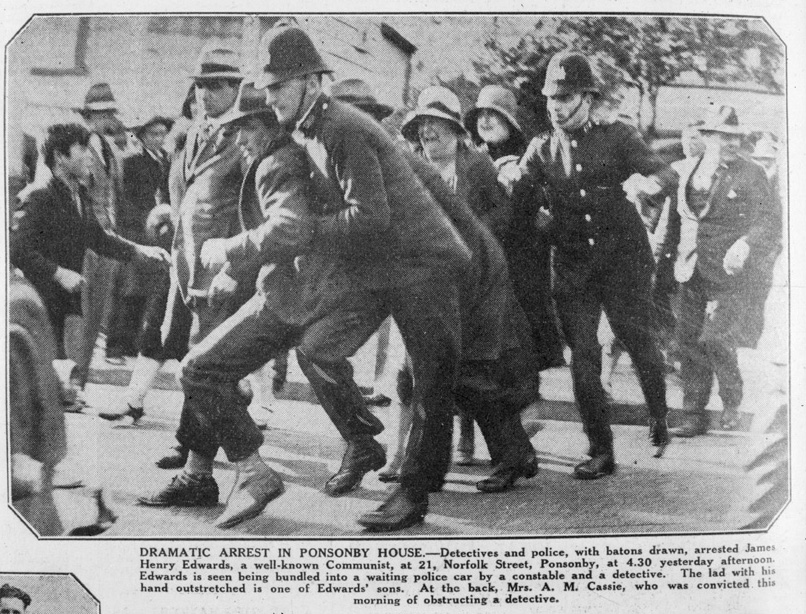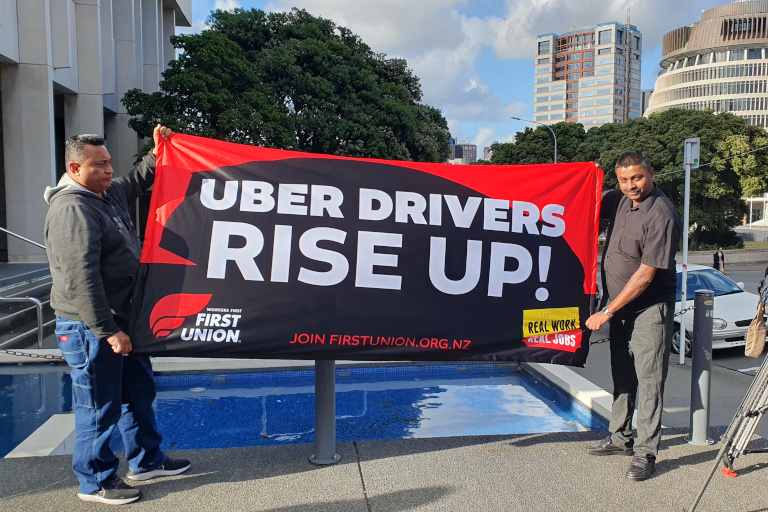Raising Expectations (and Raising Hell): My Decade Fighting for the Labor Movement
by Jane McAlevey,
Verso, 2014.
Workers today, in more cases than not, bear passive witness to a world where we have less power and a smaller share of society’s wealth than in generations. It’s rare for us to see any substantial challenge to this take place, and rarer still for us to become more than witnesses.
In Raising Hell and Raising Expectations Jane McAlevey gives a no holds barred account of her years as a full time organiser in the American trade union movement. Her account of a health care workers insurgency in Nevada, USA, is at times inspiring, at others hilarious, and at still others deeply disturbing. As memoirs go it’s not primarily focused on getting to know her as a person, but rather on telling the story of how she came to be where she did; struggling to rebuild a movement for a more just and equal world and facing obstacles to this from employers, politicians and even from other trade unionists.
The earlier sections are interesting and the author has a relaxed, casual style that makes the book a pleasure to read. Where it really gets going, however, is after she is appointed Executive Director of Local 1107 of the Service Employees International Union. McAlevey is off to Vegas.
In subsequent chapters she describes how hospital workers transformed themselves into militantly successful participants in the political, economic and historical processes that determine all our lives. They became community leaders, media darlings and won significant improvements to pay rates and working conditions. They elected pro-union candidates to local office, throwing out establishment candidates more aligned with the interests of big money.
The “whole worker organising” model she advocates and describes in motion provides food for thought to anyone involved in the trade union movement. In sharp contrast to the “business unionism” model embraced by many major unions in the US and throughout the Western world, McAlevey calls for rank and file involvement and empowerment and militant confrontation with the employers where necessary. Above all she argues for a proactive and aggressive strategy that teaches workers they deserve to win and can win, if they dare to struggle. This is only possible if unions prioritise organising workers around issues beyond the workplace.
Union members do not clock out and cease to be affected by political, social and economic issues. Our schools and hospitals are underfunded, the environments we live in are being destroyed for the profit of a greedy few, our public transport systems and city infrastructures are run down and undervalued. McAlevey contends that if the still considerable financial and organisational resources of the trade union movement are put towards organising workers and their communities – this includes non-union members – around these wider issues, we can transform the playing fields in which trade unions do the core business of bargaining with employers for a better deal. In the process, people with (often legitimate) suspicion towards the trade union ‘agenda’ can be won over to supporting and joining a movement that clearly cares about their lives.
The SEIU national leadership do not come out of the book looking good. Focused on a strategy of growth and recruitment at all costs, McAlevey alleges the national union would fly teams in for massive recruitment drives, spending millions of dollars on the initial stages of preparing a sufficient membership base to initiate bargaining for a collective agreement. After this was done, however, the team would fly out to repeat the process elsewhere, leaving a fraction of the resources behind to do the most important work of all – actually winning a decent contract, if need be through organised industrial struggle.
McAlevey is scathing of the nationwide ‘peace accords’ SEIU leadership signed with major healthcare corporations. These deals allow the union to recruit members (and receive membership dues from them), in exchange for a no strike policy. If need be, the union would itself discipline workers and prevent them from taking industrial action.
A key turning point in the book is when exactly this takes place. At the height of the SEIU’s campaign for a better contract at Sunrise Hospital, as workers brace themselves after months of hard work in preparation for a possible strike, the union’s national leadership call up the local and state in no uncertain terms that even wearing pro-union stickers will breach the peace accord signed with Hospital Corporation of America, Sunrise’s parent company. When McAlevey and her team of union delegates inform the leadership they are going ahead with the strike vote, the national leadership start “spitting knives” and threaten to trustee the local – in other words, shut it down and remove its leaders, replacing them with more ‘reliable’ ones.
McAlevey sees this as a glaring and painful example of how modern unions in the United States have rejected the idea of winning gains for workers through industrial action and shop floor campaigns, focusing instead on using their members as a compliant source of revenue to do backroom deals with the employers and fund pro-Democrat political lobbying in Washington.
It’s rare to find a book that dishes the dirt on trade union bureaucracy like this. The author has certainly made some enemies and there is ongoing debate about her allegations. McAlevey had been pushed out of the SEIU and was struggling with terminal cancer at the time of writing, and clearly felt she had little to lose by telling the full story as she saw it. It is difficult to assess from New Zealand exactly what to make of the various faction wars she describes in the American labour movement. After all, McAlevey herself was flown in from out of state without much experience in the trade union movement (and with none as a rank and file activist) to apply skills honed in previous work for NGOs to the Nevada local – can a professional activist with no healthcare experience, appointed by the national leadership to “rescue a dysfunctional local” really criticise the SEIU for being top down? That said, she can hardly be accused of being eager to leave once the initial work was done. Her downfall ultimately came as part of a battle over internal union elections with what she describes as the Nevada local’s “old guard”, grouped primarily around the union president. Critics have accused McAlevey of getting offside with elected worker-leaders in her local and improperly trying to push them out in favour of candidates who supported her vision.
These debates are interesting, but to get bogged down in them would miss what makes this book valuable. From the enforcement of peace accords with bosses to the way rival unions spent millions of dollars fighting cynically and ruthlessly to poach each other’s members, it’s hard to read this without wanting to take America’s union leaders by the shoulders and shake some sense into them. Failing this, it becomes clear (and the author explicitly argues) that rank and file activism is urgently needed to transform the unions from the ground up into the fighting, class-conscious organisations they were always supposed to be.
For all the bureaucratic shenanigans described and for all the very difficult realities unions face in a time of declining membership and employer attacks throughout the Western world, McAlevey’s book is a reminder we can still win. It makes a case for criticism of calcified union bureaucracies (and the SEIU is by no means alone in having one, in the States and in other countries), but it is does not make a case for cynical and pessimistic abstention. On the contrary; Raising Hell and Raising Expectations is a timely reminder that good union officials, committed to empowering and mobilising workers, can work with good union delegates, committed to assisting and holding their organisers to account, and together this essential combination can form the basis for a winning strategy.
End of the day, this book is a bloody good read. Don’t be surprised if you open it after dinner and find yourself up til 3am, flipping the pages as fast as you can to find out what happens to a slimy gun smuggler turned professional union buster as exhausted shift nurses develop the courage to tell him where he can shove his intimidation tactics and blackmail. To anyone involved in union organising work, either as a paid official or a shop floor delegate, the story of health care workers in Nevada getting confident, getting active and getting a better deal through their own collective effort will be a fun, heart-warming and useful read.









